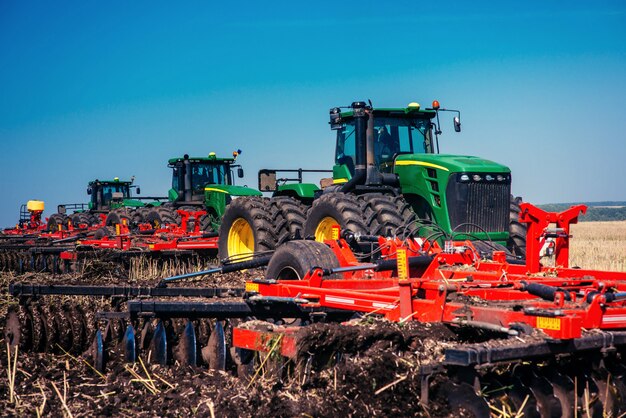Proper maintenance of farm machinery is essential for ensuring efficiency, minimizing downtime, and extending equipment lifespan. However, South African farmers often make common mistakes that lead to costly repairs and inefficiencies during critical farming seasons. Understanding these pitfalls can help avoid unnecessary expenses and improve overall productivity. Here are ten common mistakes farmers make in farm machinery maintenance and tips to prevent them.
- Skipping Routine Maintenance
Many farmers neglect regular maintenance schedules, assuming machinery will continue functioning as long as it operates without visible problems. This approach often leads to unexpected breakdowns during peak farming periods.
To avoid this mistake, follow the manufacturer’s recommended maintenance schedule, including oil changes, filter replacements, and lubrication. Routine checks ensure small issues are addressed before they escalate into major problems. - Ignoring Operator Manuals
Farmers sometimes rely on experience or guesswork instead of consulting operator manuals when maintaining or repairing machinery. This can lead to improper handling and damage to equipment.
Always refer to the operator’s manual for guidance on maintenance tasks, recommended parts, and troubleshooting. The manual contains valuable insights specific to your machine model. - Using Incorrect Lubricants and Fluids
Using the wrong type of oil, grease, or hydraulic fluid is a common error that can damage machinery components. Farmers may also overlook the importance of using clean and uncontaminated fluids.
Ensure you use the correct lubricants specified in the operator’s manual. Keep fluids sealed and stored properly to avoid contamination. - Failing to Clean Equipment Properly
Farm machinery often operates in dusty and muddy environments, leading to debris buildup. Ignoring cleaning can result in clogged filters, corroded parts, and reduced efficiency.
After each use, clean your machinery thoroughly to remove dirt, crop residues, and grease. Pay special attention to air filters, radiators, and moving parts to maintain peak performance. - Neglecting Tire Maintenance
Underinflated or worn-out tires can reduce fuel efficiency, damage crops, and make equipment harder to operate. Many farmers overlook regular tire checks.
Inspect tire pressure regularly and ensure it matches the manufacturer’s recommendations. Check for wear and replace tires that are cracked or have insufficient tread. - Overlooking Electrical Systems
Electrical systems, including batteries, wiring, and lights, are often ignored until they fail. This oversight can lead to machine downtime and delays.
Inspect the electrical system regularly. Check battery terminals for corrosion, ensure wiring is intact, and test lights and sensors to confirm they are functioning correctly. - Delaying Repairs
Farmers sometimes postpone repairs to save time or costs, hoping the machinery will last through the season. This approach often leads to more extensive and expensive problems.
Address mechanical issues as soon as they are identified. Small repairs made promptly can prevent significant damage and ensure your equipment is ready when needed. - Improper Storage
Leaving machinery exposed to harsh weather conditions can lead to rust, corrosion, and accelerated wear. Poor storage practices are a common mistake, especially during off-seasons.
Store machinery in a clean, dry shed to protect it from rain, humidity, and direct sunlight. Use covers for additional protection if indoor storage is unavailable. - Failing to Keep Maintenance Records
Without proper records, it’s easy to forget when maintenance tasks were last performed or when they are due. Many farmers overlook the importance of tracking maintenance activities.
Maintain a detailed log for each piece of equipment, recording all maintenance tasks, repairs, and replacements. This helps in planning future maintenance and ensures nothing is missed. - Using Untrained Operators
Untrained or inexperienced operators may misuse machinery, leading to premature wear or damage. Many farmers overlook the importance of proper training for operators.
Ensure all operators are trained in handling and maintaining equipment. Provide refresher courses to update their skills and emphasize safe operation practices.
Maintaining farm machinery is critical for ensuring a smooth and productive farming operation. By avoiding these common mistakes, South African farmers can reduce downtime, extend equipment lifespan, and save on repair costs. Regular maintenance not only keeps machinery in top condition but also contributes to overall farm efficiency and profitability. Make maintenance a priority to ensure long-term success.
Join 'Farmers Mag' WhatsApp Channel
Get the latest Farming news and tips delivered straight to your WhatsApp
CLICK HERE TO JOIN






